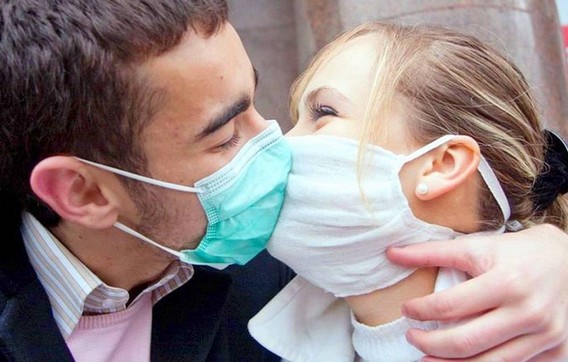 COVID-19! Panic mood! Coronavirus epidemic! Quarantine! Self isolation! However, all these terrible words do not solve the problem of a person’s need for communication with other people. Let’s try to figure out whether it is worth making new friends during a pandemic. As well as how to defend or at least reduce risks so as not to pick up a coronavirus from a new partner.
COVID-19! Panic mood! Coronavirus epidemic! Quarantine! Self isolation! However, all these terrible words do not solve the problem of a person’s need for communication with other people. Let’s try to figure out whether it is worth making new friends during a pandemic. As well as how to defend or at least reduce risks so as not to pick up a coronavirus from a new partner.
Should I make new friends?
Even if you forget about the primary needs of a person, there is no escape from communication. Anyway, you have to visit grocery stores, pharmacies, someone continues to go to work, ride on buses. But self-isolation is a great opportunity to find new friends among your neighbors or on the Internet. And if the second case without personal communication is completely safe, then the first should be more careful.

Meanwhile, in case of urgent need, it will be ideal to find for a pandemic one permanent partner who will live either with you in the same room or near you to minimize the risks of infection.
How to reduce the risks of infection in communication and meeting?
- Ordinary hand washing will not save if one of the people is already sick. However, if the infection is brought on hand from a store or pharmacy, then the chance of escape from infection is very high. Do not forget about the regular shower.
- Condoms. It has not yet been established whether coronavirus is sexually transmitted — most likely not. Over the years of its existence, the World Health Organization has not found the transmission of other types of coronaviruses in this way. But even if not, you will still get infected by prolonged contact with a sick person. Neither the absence of kisses nor condoms will save. However, the latter will help solve the problem of other diseases, primarily sexually transmitted diseases.
- Decrease in the number of partners. Everything is simple here. The fewer people you contact, the less likely you are to get infected.
- Antiseptics. With a high (60-70%) alcohol content, washing your hands, back, and feet can replace. Also suitable for disinfection of surfaces — headboards, door handles and so on. But you can not use it as a lubricant — it will not save you from infections, but you will harm the intimate microflora.
- Poses. Ideal poses with the smallest contact between partners, for example, a pose of the horsewoman.
- Virtual dating. A replacement option for regular appointments that does not carry the risk of coronavirus infection. Here, many modern services and Skype, and instant messengers like Whatsapp, and specialized video chats are suitable.
What to do with new acquaintances in the end?
Ideally, completely abandon. If not, try virtual communication. If this option does not suit you:
- Minimize the number of partners to one permanent (so that you also have one permanent one)
- Use condoms
- Wash hands and body with soap or alcohol-containing antiseptics
- Short intercourse with minimal contact (cowgirl pose)
These closures are all attempts to force social distancing, a crucially important public health intervention that can help stop transmission of the coronavirus. With Covid-19, “many people in the US will at some point, either this year or next, get exposed to this virus,” the Centers for Disease Control and Prevention’s immunization czar announced this month. Social distancing, health authorities argue, can dramatically slow the rate at which the infection spreads, helping to ease the burden on the health care system. Best practices require maintaining at least a six-foot distance between yourself and others. The closures nationally are largely preventive — in some places, no one from work or school may have even been sick — though increasingly, these decisions are being made in response to the rapidly ballooning number of cases of Covid-19; the risk that contact with large groups of people will exacerbate transmission of the virus; and the growing understanding that the disease can be transmitted by those who are asymptomatic or appear to be relatively healthy. (At least one study estimated that about 25 percent of coronavirus transmissions may have occurred in pre-symptomatic stages — meaning it can be spread by people who don’t yet know they have it.) In the United States, these efforts have taken on particular urgency: As of March 26, the US had the highest number of confirmed cases of the illness.